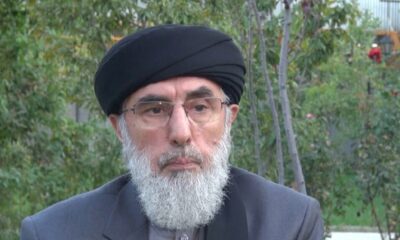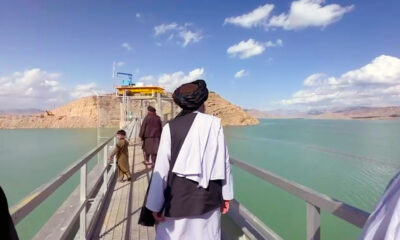World
Pentagon chief, in unannounced visit to Iraq, pledges continued US troop presence
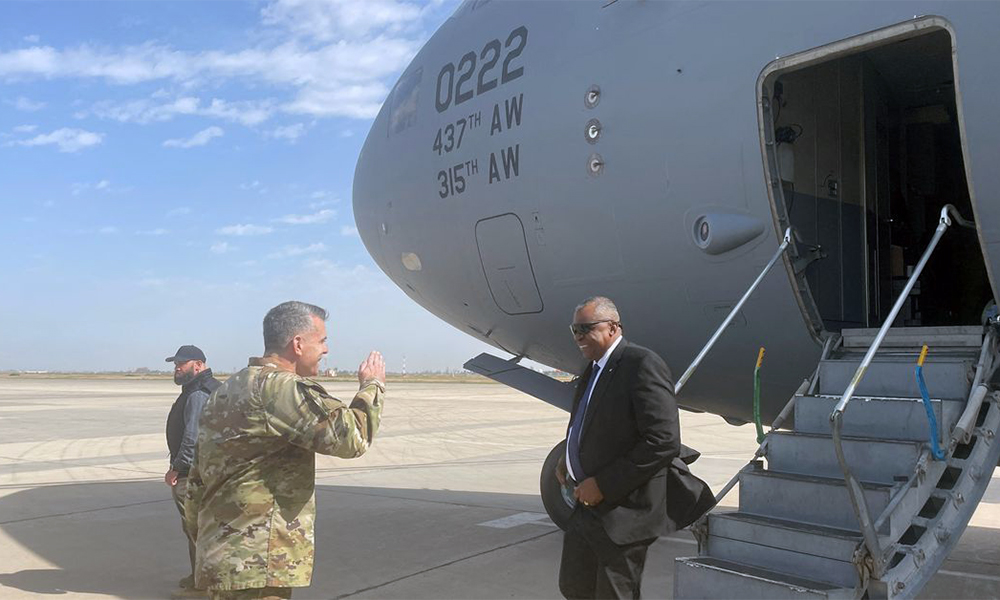
US Defense Secretary Lloyd Austin, making an unannounced trip to Iraq on Tuesday nearly 20 years after the US-led invasion that toppled Saddam Hussein, said Washington was committed to keeping its military presence in the country, Reuters reported.
The 2003 invasion led to the deaths of tens of thousands of Iraqi civilians and created instability that eventually paved the way for the rise of Islamic State militants after the US withdrew its forces in 2011.
Austin, the most senior official in President Joe Biden’s administration to visit Iraq, was the last commanding general of US forces there after the invasion.
“US forces are ready to remain in Iraq at the invitation of the government of Iraq,” Austin told reporters after meeting Iraqi Prime Minister Mohammed al-Sudani.
“The United States will continue to strengthen and broaden our partnership in support of Iraqi security, stability, and sovereignty,” he said.
Sudani later said in a statement that his government’s approach is to maintain balanced relations with regional and international governments based on shared interests and respect for sovereignty, and that “the stability of Iraq is the key to the security and stability of the region.”
The United States currently has 2,500 troops in Iraq – and an additional 900 in Syria – to help advise and assist local troops in combating Islamic State (Daesh), who in 2014 seized swathes of territory in both countries, Reuters reported.
Islamic State (Daesh) is far from the formidable force it once was, but militant cells have survived across parts of northern Iraq and northeastern Syria.
Austin’s trip is also about supporting Sudani’s push back against Iranian influence in the country, former officials and experts said.
Iranian-backed militia in Iraq have occasionally targeted US forces and its embassy in Baghdad with rockets. The United States and Iran came close to full-blown conflict in 2020 after US forces killed Iran’s Revolutionary Guards commander General Qassem Soleimani in a drone strike, read the report.
“I think that Iraqi leaders share our interest in Iraq not becoming a playground for conflict between the United States and Iran,” a senior US defense official, speaking on condition of anonymity, said.
Austin met Sudani and president of the Iraqi Kurdistan Region, Nechirvan Barzani, amid a long-running dispute over budget transfers and oil revenue sharing between the national government and Erbil, as well as the lingering acrimony between the two main Kurdish parties running the semi-autonomous region of Kurdistan.
“Erbil and Baghdad must work together for the good of all Iraqis and Kurdish leaders must put aside their divisions and come together to build a secure and prosperous Iraqi Kurdish region,” Austin said following his meeting with Barzani.
Austin also condemned Iran’s “repeated cross border attacks,” on Iraq.
Last year, Tehran fired missiles at bases of Kurdish groups in northern Iraq it accuses of involvement in protests against its restrictions on women, displacing hundreds of Iranian Kurds and killing some.
Former President George W. Bush’s administration cited its belief that Iraqi leader Saddam Hussein’s government held weapons of mass destruction to justify the decision to invade Iraq. US and allied forces later found that such stockpiles did not exist.
Between 185,000 and 208,000 Iraqi civilians were killed in the war, according to the Costs of War Project by the Watson Institute for International Studies at Brown University.
Austin, a former head of all US forces in the Middle East, said in 2011 that the United States had achieved its military objectives in Iraq.
But under former President Barack Obama, the United States sent thousands of troops back into Iraq and Syria three years later to bolster the fight against Islamic State (Daesh), read the report.
World
Israeli military vows response to Iran attack as calls for restraint mount
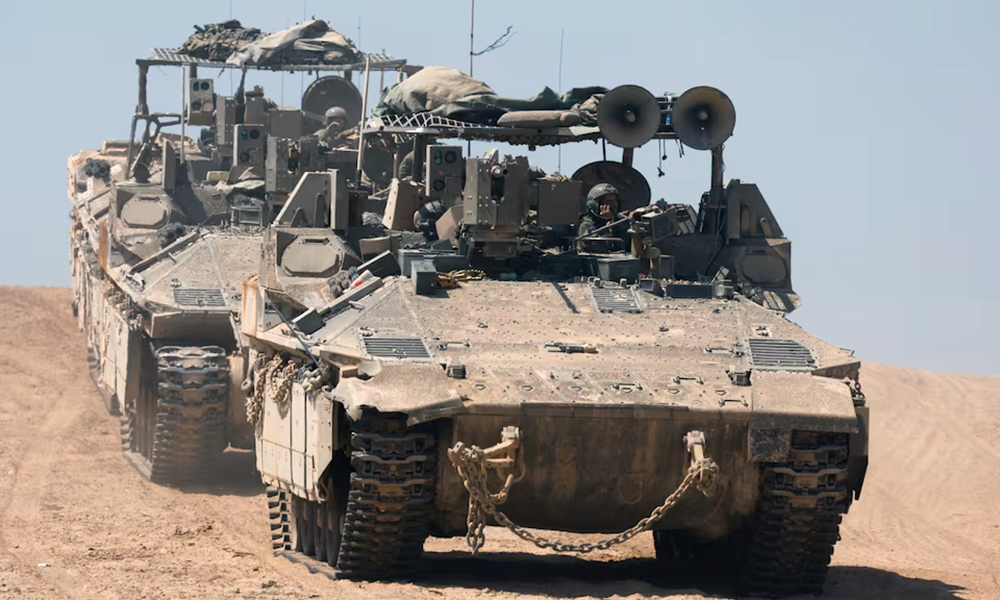
Israelis awaited word this week on how Prime Minister Benjamin Netanyahu would respond to Iran’s first-ever direct attack as international pressure for restraint grew amid fears of an escalation of the conflict in the Middle East.
Netanyahu on Monday summoned his war cabinet for the second time in less than 24 hours to weigh a response to Iran’s weekend missile and drone attack, a government source told Reuters.
Military Chief of Staff Herzi Halevi said Israel would respond. He provided no details.
“This launch of so many missiles, cruise missiles, and drones into Israeli territory will be met with a response,” he said at the Nevatim Air Base in southern Israel, which sustained some damage in Saturday night’s attack.
The prospect of Israeli retaliation has alarmed many Iranians already enduring economic pain and tighter social and political controls since protests in 2022-23.
Iran launched the attack in retaliation for what it says was an April 1 Israeli airstrike on its embassy compound in Damascus, and signaled that it does not seek further escalation, Reuters reported.
While the attack caused no deaths and limited damage, it has increased fears of open warfare between the long-time foes and fuelled concerns that violence rooted in the Gaza war is spreading.
U.S. President Joe Biden told Netanyahu at the weekend that the United States, which helped Israel blunt the Iranian attack, will not participate in an Israeli counter-strike.
Iran’s response
The Iranian Army Chief Commander Major General Abdolrahim Mousavi said on Monday however that Iran will not hesitate to give a “stormy and unified” response to any act of aggression against it.
In a message marking the National Army Day, Mousavi said great defensive measures of the country’s Army and Armed Forces have resulted in strong deterrent power.
According to him, Iran will respond to any aggression against the country’s national interests, borders and security, Iran’s Press TV reported.
Mousavi emphasized that the retaliatory strikes, dubbed Operation True Promise, revealed only a part of the capacity and strong will of the Iranian Armed Forces and were carried out in cooperation among the Islamic Revolution Guards Corps (IRGC) Aerospace Division, the Army, and the Defense Ministry.
Press TV reported that the Israeli airstrikes on Iran’s embassy compound in Damascus killed two generals of Iran’s Islamic Revolution Guards Corps (IRGC), Brigadier General Mohammad Reza Zahedi and General Mohammad Hadi Haji Rahimi, as well as five officers.
In response, on Saturday night, the IRGC targeted Israel with a barrage of drones and missiles. The extent of the damage on Israeli military bases is yet to be specified.
Following the reprisal, Iran warned Israel against taking any retaliatory actions and also urged the US to try not to involve itself in the conflict and signaled that it viewed the matter as “concluded.”
World
US will not take part in any Israeli retaliatory action against Iran
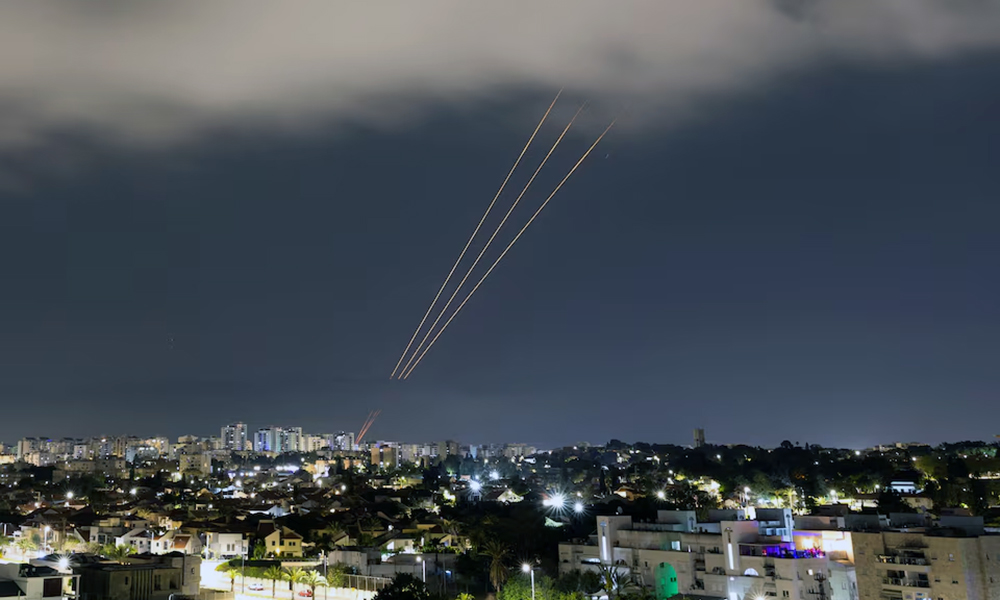
The United States said Sunday it will not join any Israeli counterattack on Iran, with President Joe Biden warning Prime Minister Benjamin Netanyahu to “think carefully” about any escalation.
The White House said Biden did not want a wider war after helping key ally Israel repel a massive aerial attack by Tehran — itself in retaliation for a presumed Israeli strike that killed an Iranian general in Damascus, AFP reported.
“We’re not looking for a wider war with Iran,” White House National Security Council spokesman John Kirby said on NBC’s “Meet the Press,” adding that the United States does not “want to see this escalate.”
Kirby said Netanyahu was “well aware” of Biden’s feelings after the two leaders spoke on Saturday while Iran’s unprecedented attack was still unfolding.
The assault saw Iran fire more than 300 drones and missiles towards Israel late Saturday, injuring 12 people, the Israeli army said.
US officials said American warplanes had brought down around 70 drones while US ships downed between four and six ballistic missiles.
But a senior Biden administration official confirmed that Biden had told Netanyahu that Washington would not offer military support for any retaliation on Iran, AFP reported.
“We would not be a part of any response they do,” the official told reporters on a call, speaking on condition of anonymity. “We would not envision ourselves participating in such an act.”
Biden and Netanyahu spoke at a time of “heightened emotion” while the attacks were still ongoing and “had a discussion about trying to slow things down.”
The US president “made very clear to the prime minister last night that we do have to think carefully and strategically about the risks of escalation.”
Israel was on high alert Sunday after Iran’s unprecedented attack sparked fears of a broader conflict.
World
UN Security Council to meet Sunday on Iran attack

The United Nations Security Council is set to meet on Sunday after Israel requested the council condemn Iran’s attack on Israel and designate the Iranian Revolutionary Guard Corps a terrorist organization.
The meeting will take place late afternoon, Reuters reported.
Israel’s ambassador to the United Nations, Gilad Erdan, requested the council hold an emergency meeting in a letter on Saturday to the council’s president.
“The Iranian attack is a serious threat to global peace and security and I expect the Council to use every means to take concrete action against Iran,” Erdan wrote in a post on X.
Iran launched a swarm of explosive drones and fired missiles at Israel late on Saturday in its first-ever direct attack on Israeli territory, risking a major escalation as the United States pledged “ironclad” backing for Israel.
-

 5 days ago
5 days agoSaar: Concerns over drug trafficking from Afghanistan discussed
-

 Tahawol5 days ago
Tahawol5 days agoTahawol: Concerns over continuation of acting government discussed
-

 Regional3 days ago
Regional3 days agoIndian foreign ministry advises against travel to Iran, Israel
-

 Latest News4 days ago
Latest News4 days agoAfghanistan withdrawal probe sparks anxiety within Biden administration: US’s McCaul
-

 Latest News3 days ago
Latest News3 days agoTop former US general claims Daesh-Khorasan is ‘on the upswing’
-

 Latest News3 days ago
Latest News3 days agoLightning strikes in Helmand kill one, injure three
-

 Science & Technology4 days ago
Science & Technology4 days agoChina launch of relay satellite Queqiao-2 for lunar probe mission successful
-
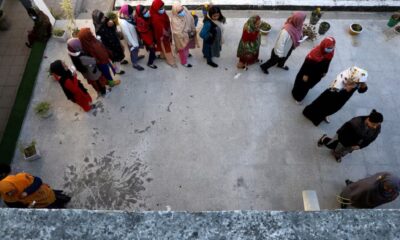
 World4 days ago
World4 days agoVoters in many countries sceptical of democracy, poll shows




